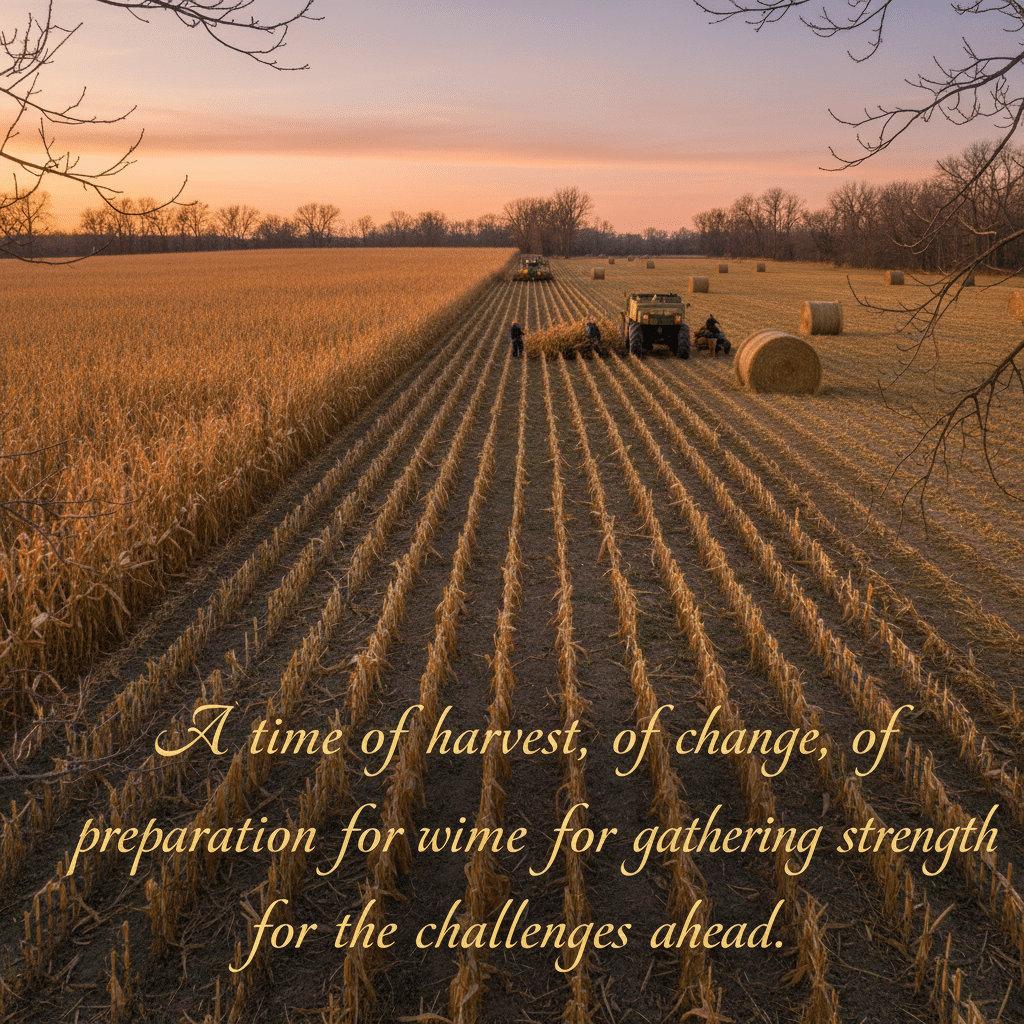

The autumnal equinox brings with it a profound shift, not just in the natural world but also in our professional lives. As leaves turn vibrant hues and then gently descend, as the air grows crisp, and as the harvest season culminates, there’s an inherent wisdom embedded in fall’s cyclical rhythm. This season of change, reflection, and culmination offers invaluable lessons for individuals striving for professional excellence. It’s a period that encourages us to review our efforts, appreciate our achievements, adapt to evolving circumstances, and strategically plan for the future.
The journey of professional growth is rarely linear; it’s a dynamic process of planting seeds, nurturing growth, enduring challenges, and finally reaping the rewards. Fall serves as a powerful metaphor for this journey, inviting us to pause and assimilate the insights it provides. By drawing inspiration from the quotes of renowned thinkers, poets, and authors who have contemplated the essence of autumn, we can uncover practical strategies to refine our work ethic, foster resilience, enhance our strategic thinking, and cultivate a mindset geared towards continuous improvement. Join us as we explore ten inspiring fall quotes and decipher their profound implications for achieving professional excellence in today’s fast-paced world.
1. “Life starts all over again when it gets crisp in the fall.” – F. Scott Fitzgerald


Fitzgerald’s evocative statement captures the rejuvenating spirit of autumn, presenting it not as an end, but as a fresh beginning. For professionals, this quote underscores the critical importance of embracing change and viewing every transition as an opportunity for renewal. In the corporate landscape, periods of organizational restructuring, market shifts, or technological advancements can often feel daunting. However, adopting Fitzgerald’s perspective allows us to approach these changes with optimism and strategic foresight.
Consider the agility required in modern business. Industries are constantly evolving, demanding that professionals and organizations remain flexible and open to new approaches. A rigid adherence to old methods can quickly lead to stagnation. Instead, the “crispness” of fall can symbolize a clean slate – a chance to re-evaluate outdated processes, discard unproductive habits, and inject fresh energy into projects. This might involve updating your skillset, re-calibrating team objectives, or even rethinking your career trajectory. Just as nature sheds its old leaves to prepare for new growth, professionals must be willing to let go of what no longer serves their advancement. This could mean leaving behind an old project framework that isn’t yielding results or shifting focus to emerging market demands.
Moreover, this quote encourages introspection and self-assessment. As the external environment transforms, so too should our internal strategies. Take time to reflect on your performance over the past year. What worked well? What challenges did you face, and how did you overcome them? More importantly, what new directions should you explore? This seasonal shift is an ideal moment to make your own aesthetic vision board and visualize new goals. By consciously deciding to “start all over again,” you can identify new learning opportunities, set ambitious yet attainable goals, and cultivate a proactive approach to professional development that ensures you remain relevant and competitive.
2. “Autumn is a second spring when every leaf is a flower.” – Albert Camus


Camus’s poetic observation beautifully re-frames our perception of autumn, transforming it from a season of decline into one of renewed vibrancy. Professionally, this quote urges us to recognize the beauty and value in every phase of a project or career, particularly those perceived as transitional or concluding. Often, we focus solely on the initial burst of innovation (“spring”) or the final, grand accomplishment. However, Camus reminds us that the “second spring” of autumn reveals a different kind of beauty—the culmination of growth, the rich tapestry of experience.
In the business world, this translates to appreciating the maturity of projects and processes. A “leaf” that is turning color is not dying; it is showcasing the richness of its completed cycle, its full expression. Similarly, the meticulous execution phase of a complex project, the rigorous data analysis that underpins a strategic decision, or the careful management of client relationships are all “flowers” in their own right. These activities, though sometimes less glamorous than initial brainstorming or final presentations, are absolutely essential for success. They represent the “harvest” of diligent effort and consistent application.
This perspective also champions the idea that experience itself holds immense value. An individual who has navigated multiple business cycles, weathered market storms, or led teams through significant transformations embodies the wisdom of autumn. Their insights are not just about new beginnings, but about the nuanced understanding that comes from seeing things through to completion. It encourages us to mentor junior colleagues, sharing the “bloom” of our accumulated knowledge. It emphasizes that the true strength of an organization lies in its ability to nurture and leverage the full spectrum of its employees’ experiences, recognizing that every stage of professional development, like every leaf, contributes to the overall beauty and strength of the collective “tree.”
3. “Delicious autumn! My very soul is wedded to it, and if I were a bird I would fly about the earth seeking the successive autumns.” – George Eliot


George Eliot’s fervent devotion to autumn speaks to a deep appreciation for cyclical renewal and the richness it brings. In a professional context, this quote inspires us to cultivate a continuous pursuit of achievement and improvement, always seeking the next “autumn”—the next cycle of culmination and learning. It’s about finding intrinsic joy and profound engagement in the journey of professional development, rather than merely the destination.
This quote highlights the importance of sustained passion and curiosity in one’s career. Professionals who are truly “wedded” to their field are those who constantly seek new challenges, embrace learning opportunities, and derive satisfaction from the iterative process of growth. They aren’t content with a single harvest; they are eager to embark on the next planting season, understanding that each cycle brings new insights and opportunities for a more bountiful yield. Think of leaders who consistently innovate, adapting their strategies and seeking out novel solutions. They are metaphorically “flying about the earth seeking successive autumns,” always looking for the next opportunity to apply their wisdom and gather new experiences.
Furthermore, Eliot’s quote can be interpreted as an encouragement to find personal fulfillment within professional endeavors. When your “soul is wedded” to your work, the distinction between effort and enjoyment blurs. This deep connection fuels resilience, creativity, and dedication, transforming tasks into passionate pursuits. It’s about fostering a mindset where the “harvest”—be it a successful project, a learned skill, or a positive impact—is not just a consequence but a celebrated milestone in an ongoing, fulfilling journey. This level of engagement often leads to exceptional outcomes, as individuals driven by such passion consistently deliver high-quality work and inspire those around them. Consider how a well-designed work environment, such as a neat desk, can contribute to this sense of satisfaction and focused engagement, aligning your physical space with your professional devotion neat desk inspiration.
4. “Every leaf speaks bliss to me, fluttering from the autumn tree.” – Emily Brontë


Emily Brontë’s serene image of a fluttering autumn leaf offers a powerful metaphor for reflection, evaluation, and the graceful acceptance of completion in our professional lives. Each falling leaf, in its quiet descent, carries a story of growth, sunlight, and the journey through the seasons. For professionals, this translates to the invaluable practice of debriefing, learning from past experiences, and understanding the natural rhythm of project lifecycles.
In the corporate world, projects, initiatives, and even partnerships have natural endings. Instead of viewing these conclusions as failures or simply moving on without a backward glance, Brontë’s quote suggests a contemplative approach. Each “leaf”—each completed task, resolved challenge, or concluded phase—holds insights. By taking the time to reflect on why certain elements succeeded, why others faltered, and what lessons were gleaned, we can extract profound “bliss”—or rather, invaluable wisdom—from every experience. This reflective practice is crucial for continuous improvement. It allows teams to identify best practices, refine methodologies, and avoid repeating past mistakes.
Moreover, “fluttering from the autumn tree” evokes a sense of letting go with grace. Not all projects are resounding successes, and not all strategies yield the desired outcomes. Sometimes, we must gracefully release efforts that are no longer viable, projects that have run their course, or ideas that didn’t fully blossom. This process of letting go, when approached with a mindset of learning and acceptance, is not a defeat but a necessary step towards future growth. It clears the mental and operational space for new endeavors, much like the forest floor enriches the soil for the next spring. Embracing this cycle of completion and reflection fosters resilience, encourages adaptability, and ultimately contributes to a more mindful and effective professional journey.
5. “The leaves are falling, and they are beautiful. So are you.” – Unknown


This anonymous quote beautifully marries the natural process of shedding with self-worth and recognition. Professionally, it speaks to the importance of recognizing the inherent value in letting go, streamlining operations, and even accepting professional transitions, all while affirming one’s own capabilities and contributions. It’s about understanding that releasing outdated methods or strategies isn’t a sign of weakness, but a necessary and often beautiful step in evolution.
In the fast-paced business environment, stagnation is often the enemy of progress. The “falling leaves” can symbolize obsolete technologies, inefficient processes, or even roles that no longer align with organizational goals. The challenge lies in seeing the beauty in this shedding—the elegance of simplification and strategic reallocation of resources. Embracing this principle means being proactive in identifying and discarding elements that consume time and energy without yielding proportional results. This could involve streamlining reporting structures, eliminating redundant tasks, or sunsetting projects that are no longer strategically relevant. By doing so, organizations and individuals can become more agile, responsive, and focused on core objectives.
Beyond organizational shedding, this quote also offers a powerful message for individual resilience and self-care. When faced with professional setbacks, job transitions, or the need to re-skill, it’s easy to feel a sense of loss or inadequacy. However, this quote reminds us that our inherent value and capabilities remain intact, much like the intrinsic beauty of a tree persists even after its leaves fall. It encourages us to trust in our ability to adapt, learn, and grow through these changes. Embracing this mindset allows professionals to navigate periods of uncertainty with greater confidence, transforming potential vulnerabilities into opportunities for renewal and self-discovery. It reminds us to value our personal and professional journey, recognizing that evolution is a beautiful process, both for nature and for ourselves.
6. “Autumn is the mellowness of the year.” – Dallas Lore Sharp


Dallas Lore Sharp’s depiction of autumn as the “mellowness of the year” evokes a sense of calm maturity, rich wisdom, and a period of seasoned perspective. For professionals, this quote emphasizes the profound value of experience, the steady hand of expertise, and the quiet confidence that comes from years of dedicated work and learning. It’s about reaching a stage where judgment is refined, decisions are well-considered, and leadership is marked by depth rather than haste.
In the professional realm, “mellowness” is synonymous with deep expertise and seasoned judgment. It’s the quiet authority of a project manager who has successfully navigated numerous complex initiatives, the strategic vision of a leader who understands market nuances, or the insightful guidance of a mentor. This mellowness is not passive; it’s a powerful force born from countless cycles of effort, learning, and adaptation. It allows for a more holistic view, enabling professionals to see beyond immediate challenges and understand long-term implications. They possess the ability to remain composed under pressure, offering stable guidance when others might falter.
Furthermore, this concept encourages us to value and cultivate patience and measured responses. In a world often driven by instant gratification and rapid-fire decisions, the “mellowness” of autumn reminds us of the power of thoughtful consideration. It’s about making informed choices, based on accumulated knowledge and a deep understanding of context, rather than reacting impulsively. This mindset contributes significantly to sustained success and fosters an environment of trust and reliability. Organizations thrive when they have individuals who embody this autumnal wisdom, capable of providing steady leadership and guiding others through complexity with calm assurance. It’s a call to cherish the journey that leads to expertise, recognizing that true professional brilliance often ripens with time.
7. “A time of harvest, of change, of preparation for winter. A time for gathering strength for the challenges ahead.” – Unknown


This anonymous quote perfectly encapsulates the multi-faceted nature of autumn and offers a comprehensive blueprint for strategic professional management. It highlights three critical phases: recognizing achievements (harvest), adapting to new conditions (change), and building resilience for future endeavors (preparation for winter). This integrated approach is vital for sustainable professional excellence.
Firstly, “a time of harvest” compels us to pause and acknowledge our accomplishments. In the relentless pursuit of new goals, professionals often overlook celebrating successes. However, recognizing the fruits of our labor—whether it’s a completed project, a successful sales quarter, or the development of a key skill—is essential for motivation and team morale. This “harvest” provides validation and reinforces the value of hard work.
Secondly, “of change” reiterates the constant need for adaptability. The professional landscape is never static. New technologies emerge, market demands shift, and competitive pressures intensify. Professionals must be agile, willing to pivot strategies, acquire new competencies, and embrace new ways of working. This might involve adopting new software, exploring emerging industry trends, or refining business models.
Finally, “of preparation for winter” is perhaps the most forward-looking aspect. Just as nature prepares for a leaner season, professionals must engage in strategic planning and resource consolidation. This involves:
- Skill Development: Identifying future skill gaps and proactively engaging in learning.
- Strategic Planning: Developing robust plans for upcoming projects, potential market downturns, or new initiatives. Consider how a blueprint for success can guide your team through this crucial preparation phase.
- Resource Management: Ensuring financial stability, optimizing team structures, and securing necessary tools or partnerships.
- Building Resilience: Strengthening personal and team well-being to withstand future pressures.
By thoughtfully engaging in all three aspects—harvest, change, and preparation—professionals can ensure they not only achieve current goals but are also robustly equipped for whatever challenges and opportunities lie ahead.
8. “I’m so glad I live in a world where there are Octobers.” – L.M. Montgomery (Anne of Green Gables)


L.M. Montgomery’s charming exclamation, spoken by the ever-optimistic Anne Shirley, embodies a profound sense of gratitude and appreciation for the unique beauty and lessons of autumn. Professionally, this quote encourages us to cultivate a mindset of gratitude, even amidst challenges, and to find joy in the distinct phases of our career journey. A positive and appreciative outlook is a powerful catalyst for motivation, resilience, and collaborative success.
In the often demanding and competitive professional world, it’s easy to focus on what’s lacking, on obstacles, or on failures. However, deliberately adopting a grateful perspective can transform how we approach our work. Being “glad there are Octobers” means acknowledging and appreciating the opportunities we have, the skills we’ve developed, the supportive colleagues we work with, and the impact we’re able to make. This isn’t about ignoring problems, but about balancing them with a recognition of positives.
Cultivating professional gratitude can manifest in several ways:
- Acknowledging Team Efforts: Regularly thanking colleagues for their contributions fosters a positive and supportive work environment.
- Appreciating Learning Opportunities: Viewing setbacks as learning experiences rather than just failures, and being grateful for the chance to grow.
- Valuing Mentorship: Expressing gratitude for the guidance and wisdom shared by mentors and senior colleagues.
- Recognizing Personal Growth: Taking stock of how far you’ve come, the skills you’ve mastered, and the challenges you’ve overcome.
A leader who fosters a culture of gratitude often sees increased team engagement, lower turnover, and greater innovation. Employees who feel appreciated and who themselves practice gratitude tend to be more resilient, better able to cope with stress, and more collaborative. Just as Anne finds joy in the vibrant colors and crisp air of October, professionals can find deep satisfaction and motivation by actively appreciating the unique ‘season’ they are in, recognizing the beauty and potential in every stage of their career journey. This positive perspective fuels sustained effort and helps build a more rewarding professional life.
9. “And all at once, summer collapsed into fall.” – Oscar Wilde


Oscar Wilde’s concise yet vivid statement highlights the often abrupt and sudden nature of transitions. While nature’s shift from summer to fall is gradual in some respects, there can be a definitive moment when the warmth gives way to a crisp chill, and the landscape transforms. Professionally, this quote serves as a powerful reminder that change can be swift and unexpected, necessitating quick adaptation and agile responses.
In the modern business environment, unexpected shifts are the norm rather than the exception. Market conditions can change overnight, new competitors can emerge, regulatory landscapes can be altered, or technological disruptions can completely reshape an industry. The “collapse” of summer into fall signifies these rapid transformations that often catch the unprepared off guard. For professionals and organizations, the key takeaway is the importance of cultivating adaptability and scenario planning.
This means:
- Proactive Monitoring: Staying abreast of industry trends, technological advancements, and economic indicators. Being aware of the subtle signs before a major “collapse.”
- Agile Strategies: Developing flexible plans that can be quickly adjusted in response to new information. Rigidity in strategy can be detrimental when rapid change occurs.
- Resilience Building: Fostering a mindset and organizational culture that views change as an opportunity rather than a threat. This includes continuous learning and skill diversification. Consider how top 7 UX methods can offer frameworks for rapid problem-solving and adaptation in product development, reflecting this need for agility.
- Effective Communication: During periods of abrupt change, clear, consistent, and empathetic communication within teams and with stakeholders is paramount to manage uncertainty and maintain cohesion.
Wilde’s quote underscores the notion that while we can anticipate cycles, the timing and intensity of their onset may not always be predictable. Professional excellence, therefore, is not just about executing planned strategies, but also about the capacity to swiftly and effectively pivot when the professional “summer” unexpectedly gives way to “fall.” It’s a call to be perpetually ready for the next shift, whatever its magnitude.
10. “Fall has always been my favorite season. The time when everything bursts with its last beauty, as if nature had been saving up all year for the grand finale.” – Lauren DeStefano


Lauren DeStefano’s heartfelt adoration for fall, seeing it as nature’s “grand finale,” offers a profound perspective on the culmination of effort, the peak of performance, and the legacy of dedicated work in our professional lives. It suggests that the true beauty and impact of our contributions often become most apparent after sustained effort, manifesting as a rich and vibrant climax of our professional journey.
This quote highlights the idea of a professional “grand finale,” not necessarily as an end, but as a period where accumulated experience, skill, and dedication converge to produce exceptional results. This isn’t about a single event but about a sustained period of high performance and impact. Think of a seasoned executive leading a company through a pivotal transformation, a long-term project finally delivering groundbreaking innovation, or an individual reaching the pinnacle of their craft through years of refinement. This “burst of last beauty” represents the mature phase of a career where expertise is fully realized and contributions are impactful and enduring.
To achieve such a “grand finale” in one’s career, several elements are crucial:
- Continuous Skill Development: Like nature saving up energy, professionals must continuously hone their skills and expand their knowledge base over time.
- Strategic Application of Experience: Leveraging past successes and failures to inform current decisions and future strategies, ensuring that every lesson contributes to mastery.
- Mentorship and Legacy: Sharing accumulated wisdom with the next generation, ensuring that the “beauty” of your expertise continues to inspire and guide others. This contributes to a lasting professional legacy.
- Impact-Driven Work: Focusing on projects and roles that allow for the greatest contribution and leverage of your unique talents, making your efforts truly count.
DeStefano’s words encourage us to envision our professional journey as a process leading to a magnificent display of our capabilities. It’s a powerful motivation to consistently strive for excellence, knowing that every effort, every lesson, and every challenge overcome contributes to that eventual, breathtaking “grand finale” of professional distinction. It’s about recognizing that true mastery isn’t rushed; it’s cultivated, preparing for a spectacular display of accumulated brilliance.
Conclusion: Embracing the Harvest of Professional Excellence


The wisdom embedded in the season of fall offers a rich tapestry of lessons for professional excellence. From F. Scott Fitzgerald’s call to embrace new beginnings to Lauren DeStefano’s vision of a “grand finale” of effort, these inspiring quotes guide us through the cyclical nature of growth, adaptation, and achievement. Fall reminds us that while summer’s vibrant energy may fade, it gives way to a season of profound introspection, strategic planning, and the culmination of our dedicated efforts.
Embracing the “crispness” of change allows us to shed outdated practices and welcome innovation. Appreciating autumn as a “second spring” enables us to find value in every stage of a project, recognizing that even transitions hold unique beauty. Eliot’s passion inspires us to continuously seek new challenges, while Brontë’s gentle fluttering leaves remind us to reflect, learn, and let go with grace. Sharp’s “mellowness” emphasizes the power of seasoned experience, and the anonymous harvest quote provides a clear roadmap for celebrating successes, adapting to shifts, and preparing diligently for the future. Montgomery’s gratitude fosters a positive mindset, and Wilde’s abrupt “collapse” warns us to be agile. Finally, DeStefano’s “grand finale” motivates us to strive for peak performance, leveraging years of effort into impactful contributions.
As professionals, let us harness these autumnal insights. Let us reflect on our past year’s “harvest,” celebrate our achievements, adapt to the inevitable winds of change, and strategically plant seeds for future growth. By internalizing this timeless wisdom, we can navigate our careers with greater foresight, resilience, and a deeper appreciation for the continuous journey towards professional excellence. Embrace your own professional fall, and watch as your efforts blossom into a magnificent display of achievement and wisdom. What lessons will you harvest this season to cultivate your professional future?
- 2shares
- Facebook0
- Pinterest2
- Twitter0
- Reddit0



